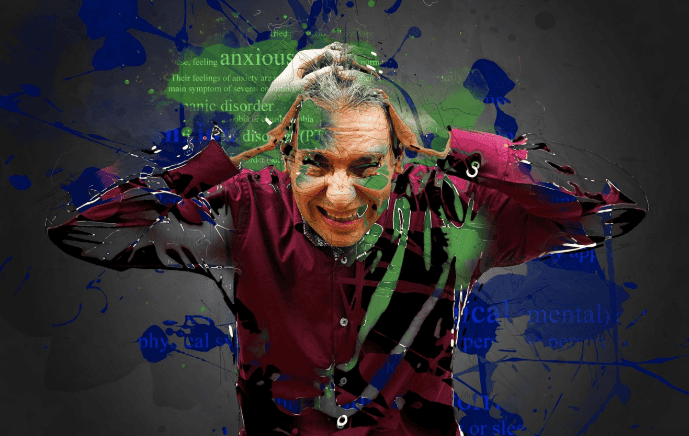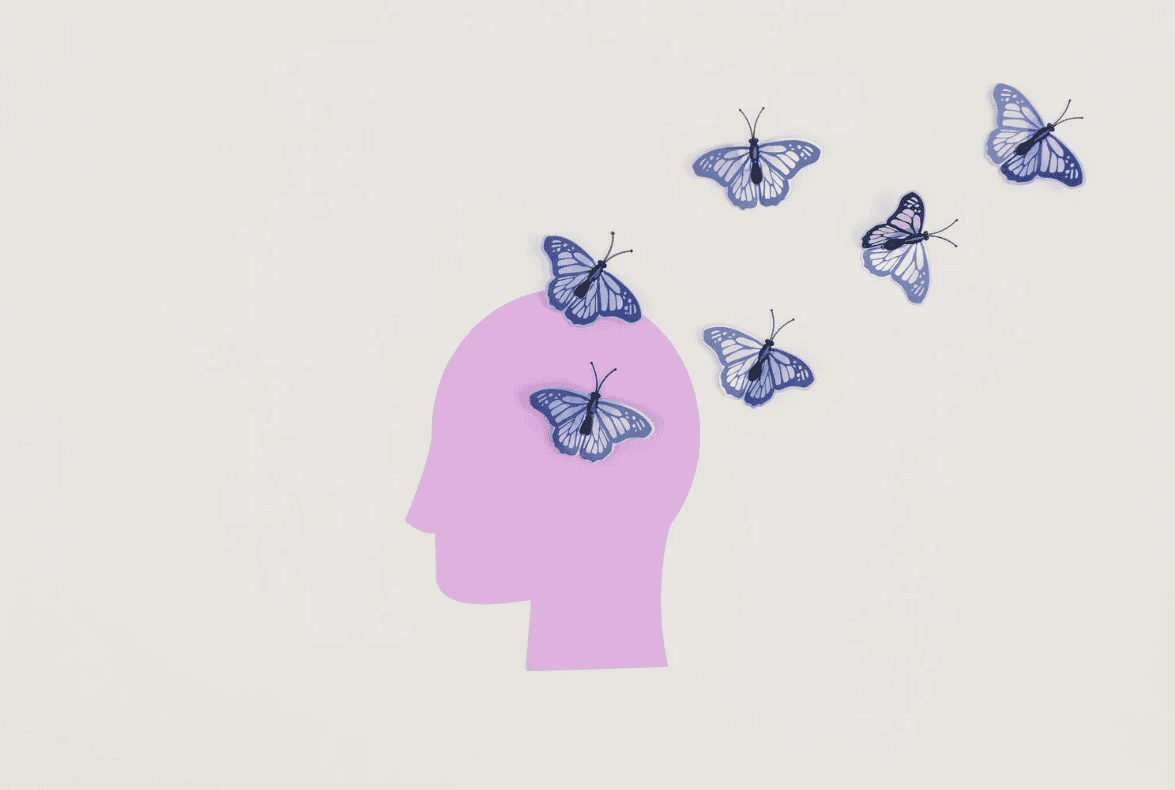Are you dealing with depression or other mental health issues? Looking for alternative treatments that work when traditional therapies have failed?
There’s growing research that suggests that delta-9 THC, the main psychoactive compound in cannabis, might help with mental health issues. There are plenty of interesting links between this compound and the brain. Keep reading to learn more.
What You’ll Discover
- Understanding Delta-9 THC
- Delta-9 THC and Mental Health: What We Know
- Potential Benefits for Depression
- Anxiety Management Possibilities
- PTSD Symptom Relief
Understanding Delta-9 THC
Delta-9 tetrahydrocannabinol (THC) is the primary psychoactive compound in cannabis. It’s what makes people “high” when they smoke marijuana. But delta-9 THC interacts with your body’s endocannabinoid system, which helps regulate your mood, memory, appetite, and stress response.
When you smoke or ingest cannabis, delta-9 THC binds to the cannabinoid receptors in your brain, particularly the CB1 receptors. This activates the release of neurotransmitters like dopamine and serotonin, which regulate mood and emotional processing.

Delta-9 THC and Mental Health: What We Know
The relationship between delta-9 THC and mental health is complicated and still largely unknown. Cannabis use, largely delta-9 THC, is common among people with mental health disorders, according to population survey data. People want to use cannabis for its potential mental health benefits, and the research is ongoing to establish a scientific basis for decision-making.
For many people seeking alternative approaches to managing their mental health, tailored effects for you for you can be an important step in developing a personalized wellness routine that addresses your specific needs and symptoms.
Potential Benefits for Depression
Depression is a worldwide condition that affects millions of people. For many, conventional treatments don’t work, or they need additional ways to manage their symptoms. Some people say delta-9 THC helps them manage their depression by:
- Producing a euphoric feeling that lifts mood temporarily
- Encouraging relaxation and stress relief
- Improving sleep problems associated with depression
- Increasing serotonin activity in the brain
However, research on this issue is mixed. Some studies suggest benefits, but others show that long-term, heavy use can worsen symptoms for some people.
Anxiety Management Possibilities
Anxiety is another mental health condition where delta-9 THC’s relationship is mixed:
- Low doses may decrease anxiety for some people
- THC relaxes people and breaks the cycle of anxious thinking
- THC may help with social anxiety by reducing inhibitions
- Some people say it relieves physical symptoms of anxiety like muscle tension
Research shows that delta-9 THC use is associated with short-term and long-term brain function effects, especially on working memory and specific brain areas like the anterior insula and medial prefrontal cortex. These brain regions are important for emotional processing and anxiety regulation.
PTSD Symptom Relief
For people with Post-Traumatic Stress Disorder (PTSD), delta-9 THC may help:
- Decrease nightmare frequency and intensity
- Improve sleep problems common in PTSD
- Help with emotional processing of traumatic memories
- Decrease hypervigilance and startle response
Some veterans and trauma survivors say delta-9 THC helped their PTSD symptoms when used in controlled ways, but clinical research is catching up to these reports.
Important Considerations and Risks
It’s important to understand potential risks and drawbacks when you explore delta-9 THC’s potential benefits for mental health. According to the National Institute on Drug Abuse (NIDA), cannabis, with delta-9 THC as the primary psychoactive component, has been associated with both short- and long-term mental health effects like mood and anxiety disorders, psychotic episodes, and cognitive impairments, especially for those who use cannabis regularly and heavily and those who begin using in adolescence or young adulthood.
Other considerations include:
Bipolar Disorder Concerns
For people with bipolar disorder, delta-9 THC may induce or worsen manic episodes. People with bipolar disorder should be especially careful if they consider using THC.
Psychosis Risk
The National Academies of Sciences, Engineering, and Medicine report that delta-9 THC causes the “high” associated with cannabis use and has addictive potential. Delta-9 THC short-term effects include memory, concentration, coordination, reaction time, and judgment impairment, as well as an increased risk of mood and anxiety disorders and psychosis.
People with a history of psychotic disorders like schizophrenia should be very careful about using delta-9 THC, as it may increase their risk of psychotic symptoms or episodes.
Dosage Sensitivity
The effects of delta-9 THC vary greatly:
- By the dose amount
- Based on the individual’s body chemistry
- Depending on tolerance levels
- By the way it’s consumed
- Based on the specific strain or product
Many people find it takes time and patience to experiment and find the right approach.
Delta-9 THC Potential Benefits on Mental Health
Long-term effects of delta-9 THC on mental health are not well understood. In the long term, delta-9 THC use has been associated with cardiovascular and pulmonary risks, negative pregnancy and neonatal outcomes, impaired brain development, decreased cognitive functioning, lower educational attainment, and psychotic disorders like schizophrenia.
These potential risks emphasize the importance of approaching delta-9 THC use thoughtfully, especially for mental health reasons.

Legal Considerations
Delta-9 THC’s legal status varies from state to state:
Some states allow legal access with a medical marijuana program and the proper documentation
Some states have legalized cannabis for recreational use
Some areas prohibit delta-9 THC in all forms
Federal law continues to classify it as a Schedule 1 controlled substance
Always check the laws in your state before considering delta-9 THC products.
Finding the Right Approach
If you’re considering delta-9 THC for mental health reasons, consider these tips:
Talk to healthcare providers. Talk to mental health professionals and, if possible, professionals who know about cannabinoids
Start low and go slow. Start with low doses and gradually increase if needed
Keep a journal. Document positive and negative effects to determine what works best
Consider CBD combination. Some people find delta-9 THC products that contain CBD offer better mental health benefits with fewer side effects
Be mindful of the consumption method. Smoke, vape, edibles, and tinctures have different time-to-effect profiles
Delta-9 THC & The Future of Research
Recent research on cannabis and cannabis policy shows the need for comprehensive cannabis and cannabis policy research. Researchers emphasize that the current data is insufficient and evolving, and this is only likely to continue.
As more states legalize cannabis, and restrictions on research ease, we should see more definitive information about how delta-9 THC affects various mental health conditions. This will help establish more evidence-based approaches to using cannabinoids for psychological wellness.
Wrapping Up What We’ve Learned
Delta-9 THC has some potential for certain mental health conditions, but it’s not a one-size-fits-all solution. The relationship between delta-9 THC and mental health is complicated, and there are both potential benefits and potential risks to consider.
If you’re dealing with mental health issues and considering delta-9 THC as an option, approach it as one tool among many. Talk to healthcare providers who know about cannabinoids, stay up to date on the latest research, and make your mental health a priority by creating a comprehensive approach that may include therapy, changes in your lifestyle, conventional medications when appropriate, and thoughtful consideration of alternative treatments like delta-9 THC.
Everyone’s experience with cannabinoids is different, and what works for one person may not work for another. You’ll need to find what works for you, including patience, careful observation, and a willingness to adjust based on your own response.


